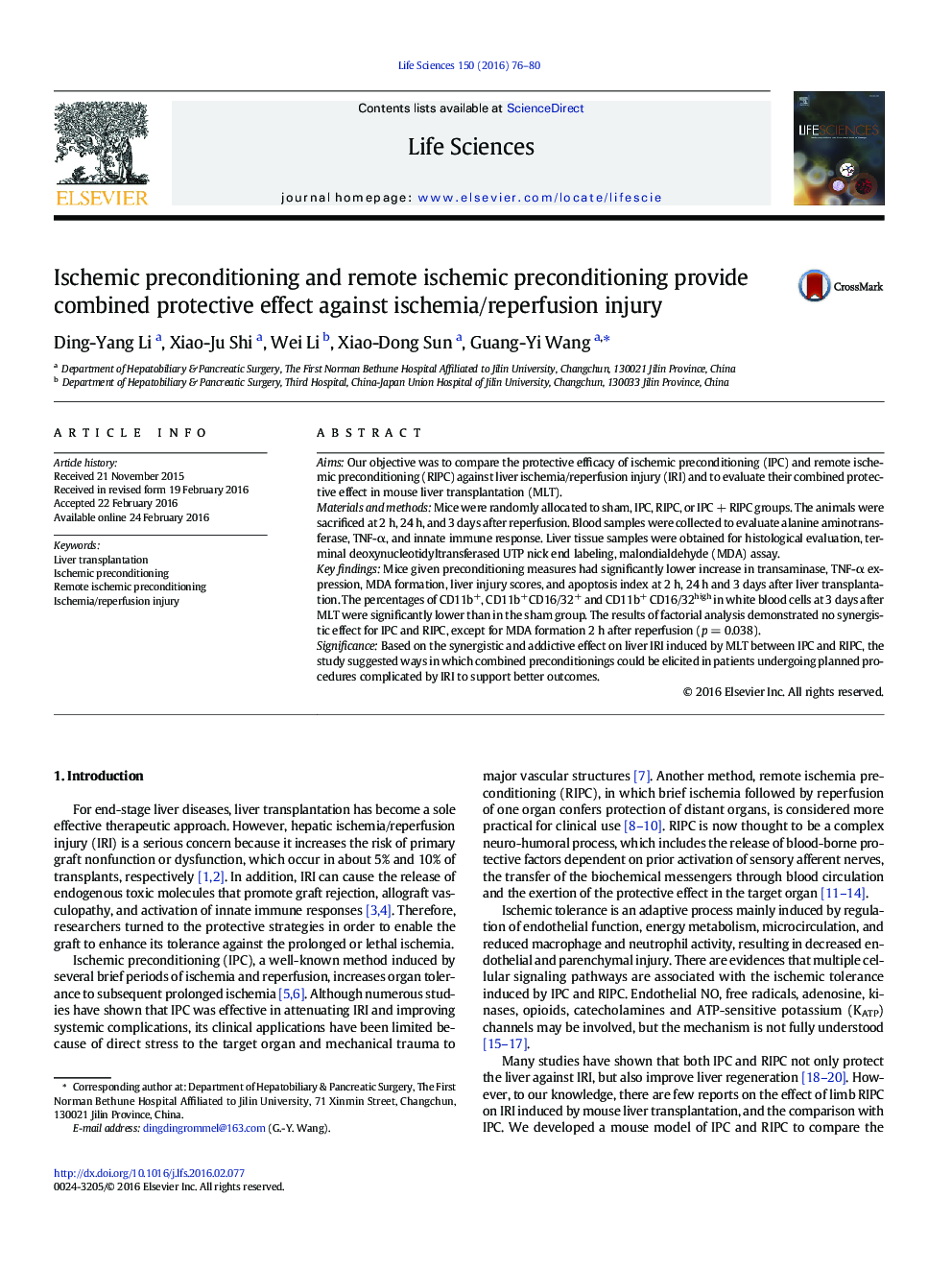| Article ID | Journal | Published Year | Pages | File Type |
|---|---|---|---|---|
| 2550476 | Life Sciences | 2016 | 5 Pages |
AimsOur objective was to compare the protective efficacy of ischemic preconditioning (IPC) and remote ischemic preconditioning (RIPC) against liver ischemia/reperfusion injury (IRI) and to evaluate their combined protective effect in mouse liver transplantation (MLT).Materials and methodsMice were randomly allocated to sham, IPC, RIPC, or IPC + RIPC groups. The animals were sacrificed at 2 h, 24 h, and 3 days after reperfusion. Blood samples were collected to evaluate alanine aminotransferase, TNF-α, and innate immune response. Liver tissue samples were obtained for histological evaluation, terminal deoxynucleotidyltransferased UTP nick end labeling, malondialdehyde (MDA) assay.Key findingsMice given preconditioning measures had significantly lower increase in transaminase, TNF-α expression, MDA formation, liver injury scores, and apoptosis index at 2 h, 24 h and 3 days after liver transplantation. The percentages of CD11b+, CD11b+ CD16/32+ and CD11b+ CD16/32high in white blood cells at 3 days after MLT were significantly lower than in the sham group. The results of factorial analysis demonstrated no synergistic effect for IPC and RIPC, except for MDA formation 2 h after reperfusion (p = 0.038).SignificanceBased on the synergistic and addictive effect on liver IRI induced by MLT between IPC and RIPC, the study suggested ways in which combined preconditionings could be elicited in patients undergoing planned procedures complicated by IRI to support better outcomes.
